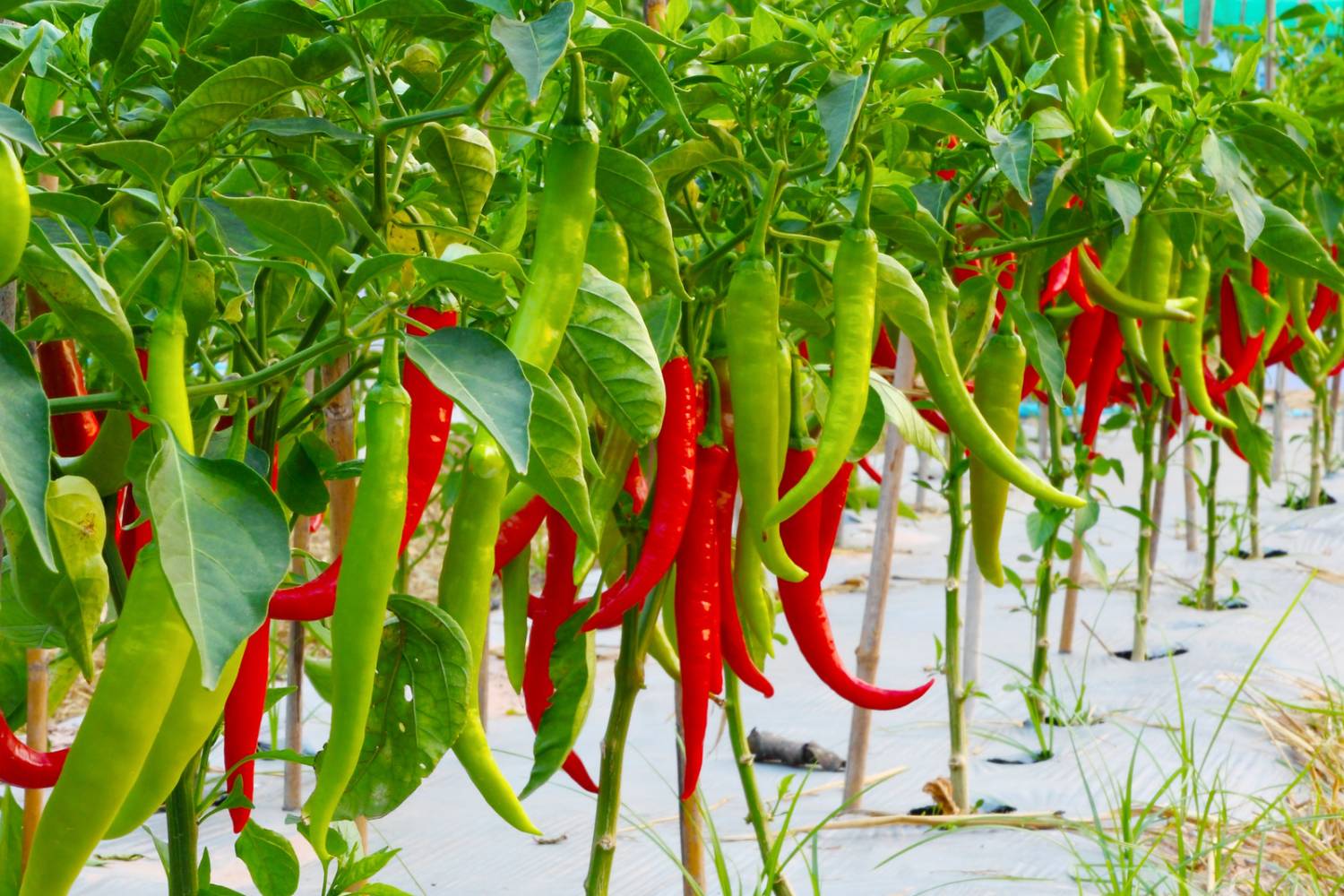Best Fertilizers for Peppers: Boost Development and Taste with Our Leading Picks
Best Fertilizers for Peppers: Boost Development and Taste with Our Leading Picks
Blog Article
Organic Vs. Synthetic Fertilizers: Which Is Best for Supporting Healthy And Balanced Pepper Plants?
In the world of nurturing healthy and balanced pepper plants, the selection in between synthetic and organic fertilizers stands as an essential choice with significant effects. While both options goal to give essential nutrients to sustain plant development, the nuances of their effect on the soil, plant health and wellness, and the environment trigger a debate that mirrors throughout the horticulture community. Understanding the distinct advantages and possible risks of each plant food kind is vital for pepper growers looking for to optimize their yields while preserving a lasting and eco-conscious method.
Advantages of Organic Fertilizers
Organic plant foods use a sustainable and environmentally-friendly strategy to beneficial pepper plants, supplying vital nutrients without using synthetic chemicals. These natural plant foods are originated from organic sources such as garden compost, manure, bone meal, and seaweed, advertising dirt health and wellness and biodiversity. Unlike artificial plant foods, organic choices release nutrients slowly, making sure a well balanced and constant supply for pepper plants to flourish.
One considerable benefit of organic fertilizers is their ability to improve soil structure and water retention. By enhancing soil health, organic fertilizers promote useful microbial task, which helps in nutrient uptake by pepper plants. In addition, organic plant foods reduce the danger of chemical run-off, protecting water sources from pollution and safeguarding the environment.
Additionally, organic fertilizers add to long-lasting dirt fertility by promoting the growth of valuable dirt microorganisms. These organisms aid break down raw material, releasing nutrients in a type that is easily available to pepper plants. best fertilizers for peppers. By fostering a healthy soil ecological community, organic plant foods support sustainable pepper growing techniques that benefit both plants and the environment
Drawbacks of Artificial Fertilizers
Artificial plant foods, in contrast to their natural equivalents, pose various disadvantages when made use of to nurture pepper plants, affecting both plant health and wellness and environmental sustainability. One major downside of synthetic plant foods is their propensity to seep nutrients from the soil promptly.
Additionally, the overuse of synthetic fertilizers can add to water pollution. Excess fertilizers not absorbed by plants can get rid of into water bodies, bring about eutrophication, where algae blossoms deplete oxygen levels in the water, harming marine life. Moreover, synthetic fertilizers are generally obtained from non-renewable sources, such as nonrenewable fuel sources, adding to carbon emissions and ecological deterioration throughout their manufacturing.
Nutrient Absorption Contrast
When contrasting artificial and organic fertilizers in terms of nutrient absorption, organic fertilizers have the advantage of offering a much more well balanced and slow-release resource of nutrients. Organic plant foods have a selection of macro and micronutrients that are not only advantageous for the plants however likewise promote healthy soil microbial activity, which assists in nutrient uptake.
Moreover, natural plant foods improve soil structure and water retention capability, enabling pepper plants to gain access to nutrients a lot more effectively. This enhanced soil quality helps with root development, enabling better nutrient absorption. Synthetic plant foods, although originally enhancing plant development because of their high nutrient concentrations, may hinder lasting nutrient absorption by derogatory soil health and wellness in time.
Environmental Influence Factors To Consider

On the various other hand, artificial fertilizers, although often even more concentrated and instantly available to plants, can have detrimental results on the atmosphere if not used correctly (best fertilizers for peppers). Their production needs high energy inputs, bring about greenhouse gas discharges and adding to environment modification. Moreover, the drainage of excess synthetic plant foods can contaminate water resources, leading to eutrophication go right here and damaging aquatic ecosystems.
Finest Plant Food Practices for Peppers
When feeding pepper plants, optimizing nutrient uptake and reducing ecological influence are key considerations. To accomplish this, it is necessary to follow best fertilizer methods tailored to the certain demands of pepper plants. One crucial practice is to carry out a soil test prior to using any kind of fertilizers. This examination can identify the pH level of the soil and determine any type of nutrient shortages, assisting you in selecting one of the most suitable fertilizer formulation.
Another important practice is to feed pepper plants at the correct time. Commonly, peppers take advantage of getting fertilizer at planting and afterwards once more when they begin to flower. Over-fertilizing can lead to vitamins and mineral inequalities and hurt the plants, so it is important to follow advised application prices.
Additionally, picking a balanced plant food with an NPK proportion that fits pepper plants' needs is essential. Inevitably, integrating artificial and natural fertilizers deliberately can assist support healthy pepper plants while lessening ecological impact.
Verdict

Organic fertilizers use an environmentally-friendly and sustainable technique to beneficial pepper plants, offering necessary nutrients without the usage of synthetic chemicals. Unlike synthetic plant foods, natural options release nutrients slowly, making certain see this here a steady and balanced supply for pepper plants to thrive.
Synthetic plant foods, in comparison to their natural counterparts, position different downsides when made use of to nourish pepper plants, affecting both plant health and wellness and ecological sustainability. When contrasting natural and synthetic fertilizers in terms of nutrient absorption, natural plant foods have the benefit of supplying a more balanced and slow-release source of nutrients.Additionally, organic fertilizers improve soil structure and water retention capability, enabling pepper plants to gain access to nutrients a lot more successfully.
Report this page